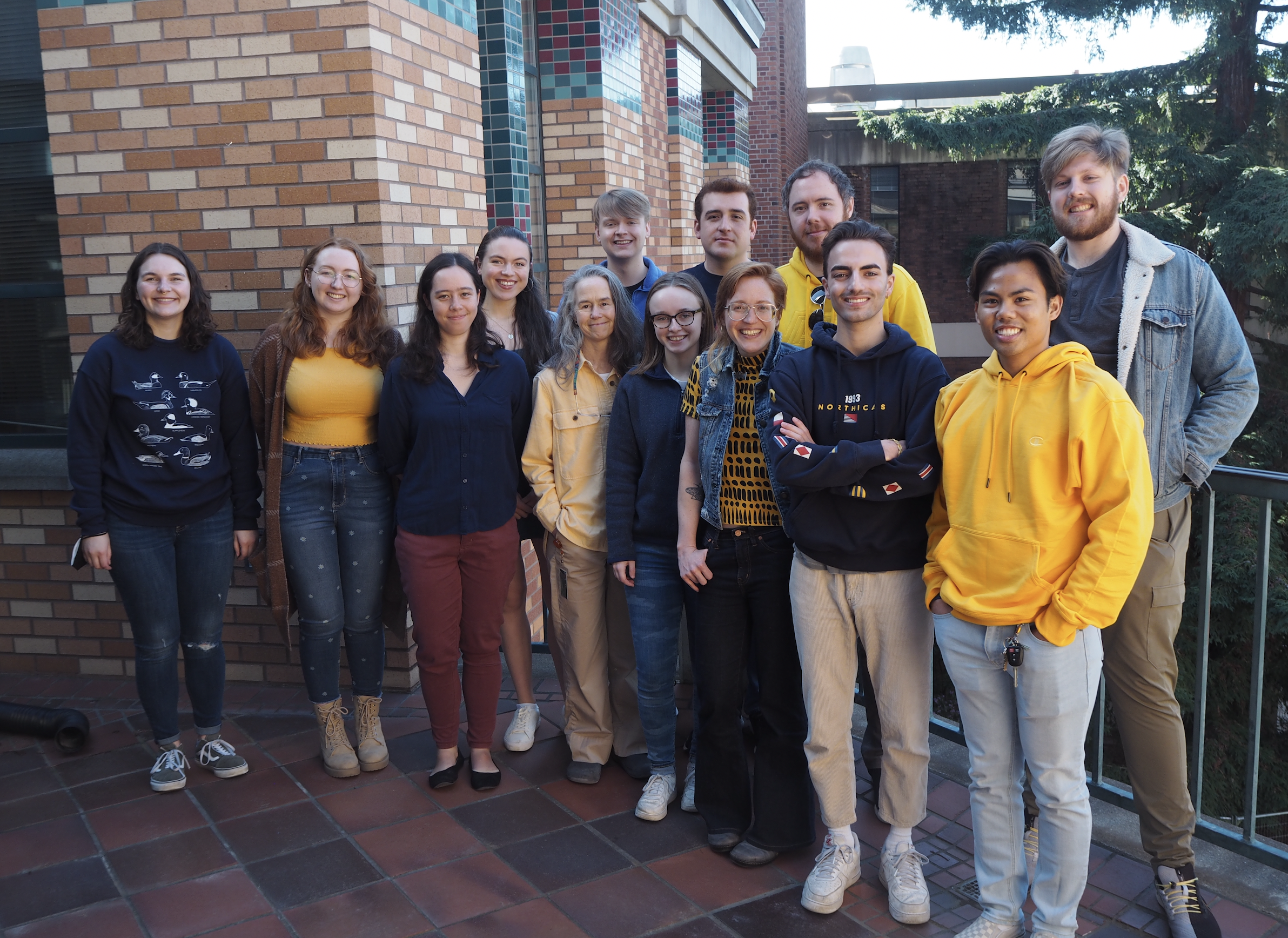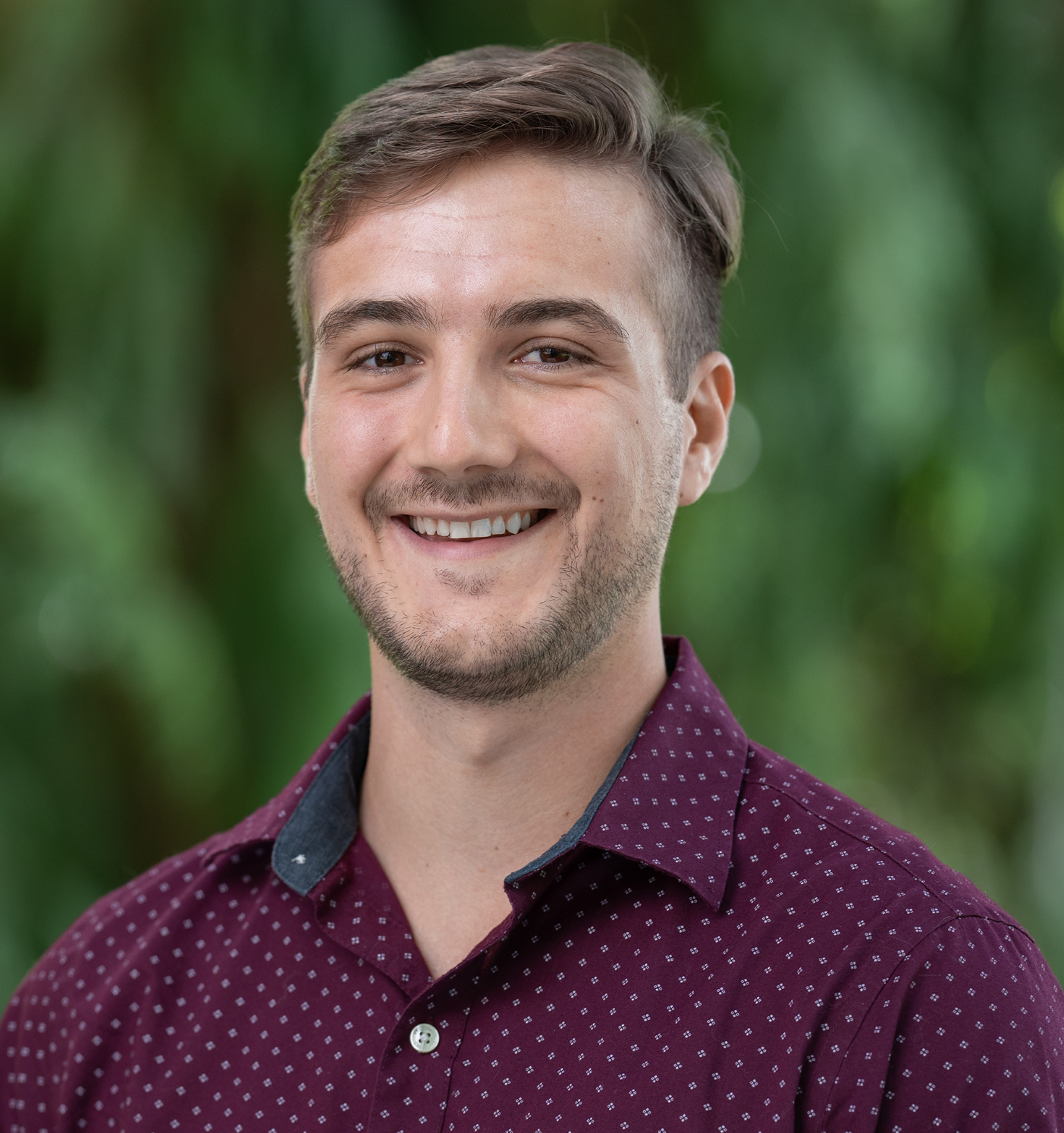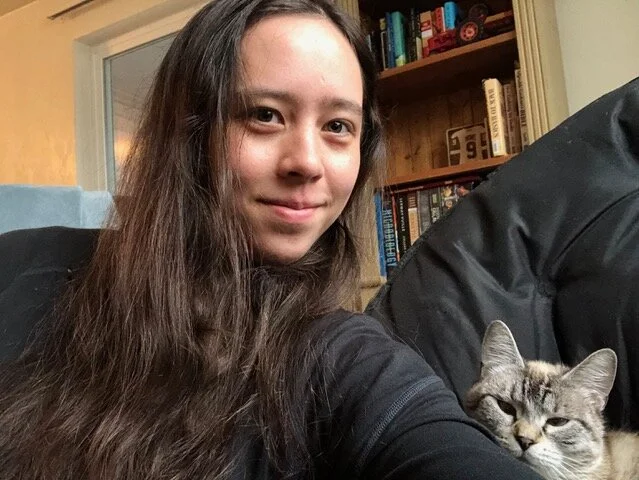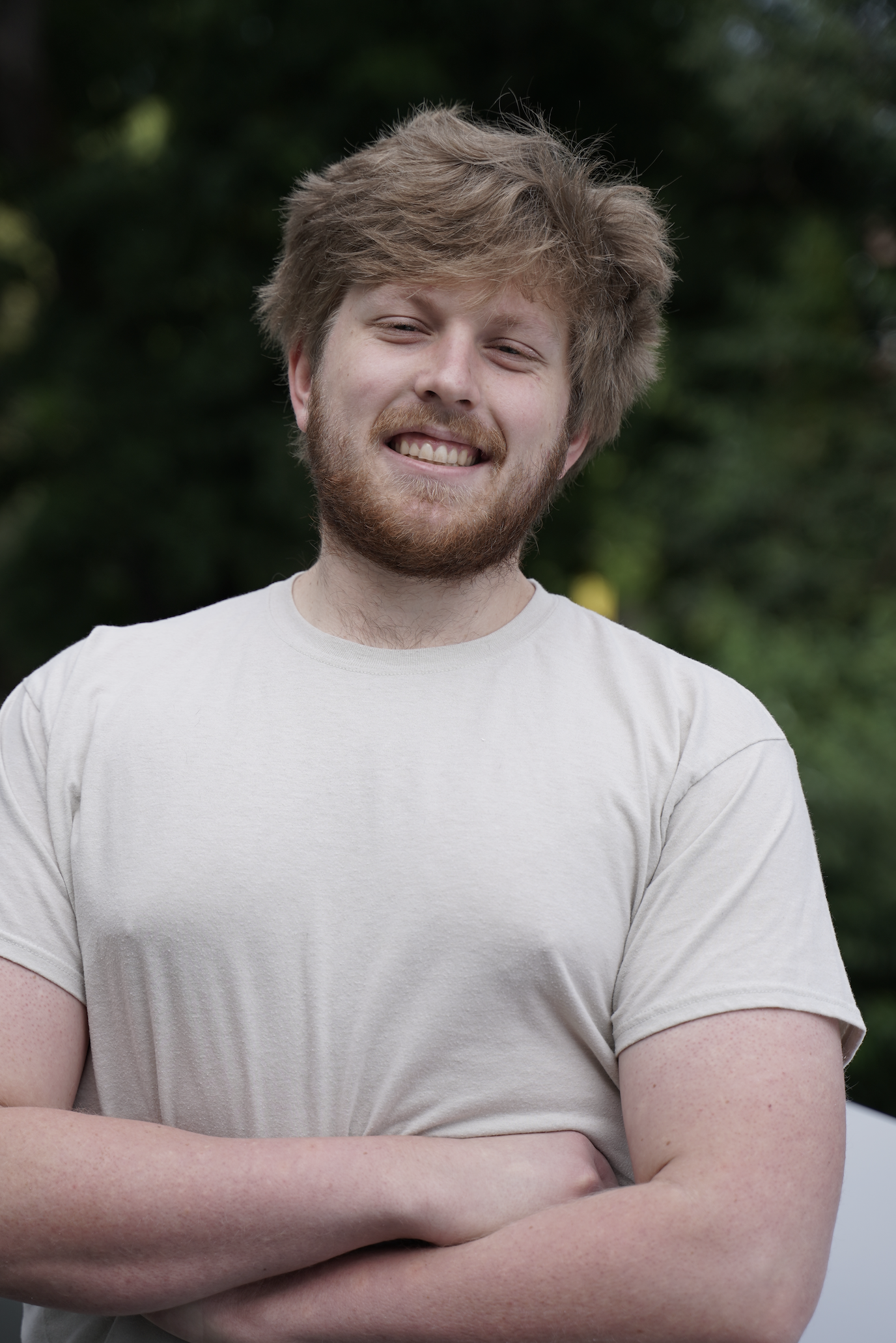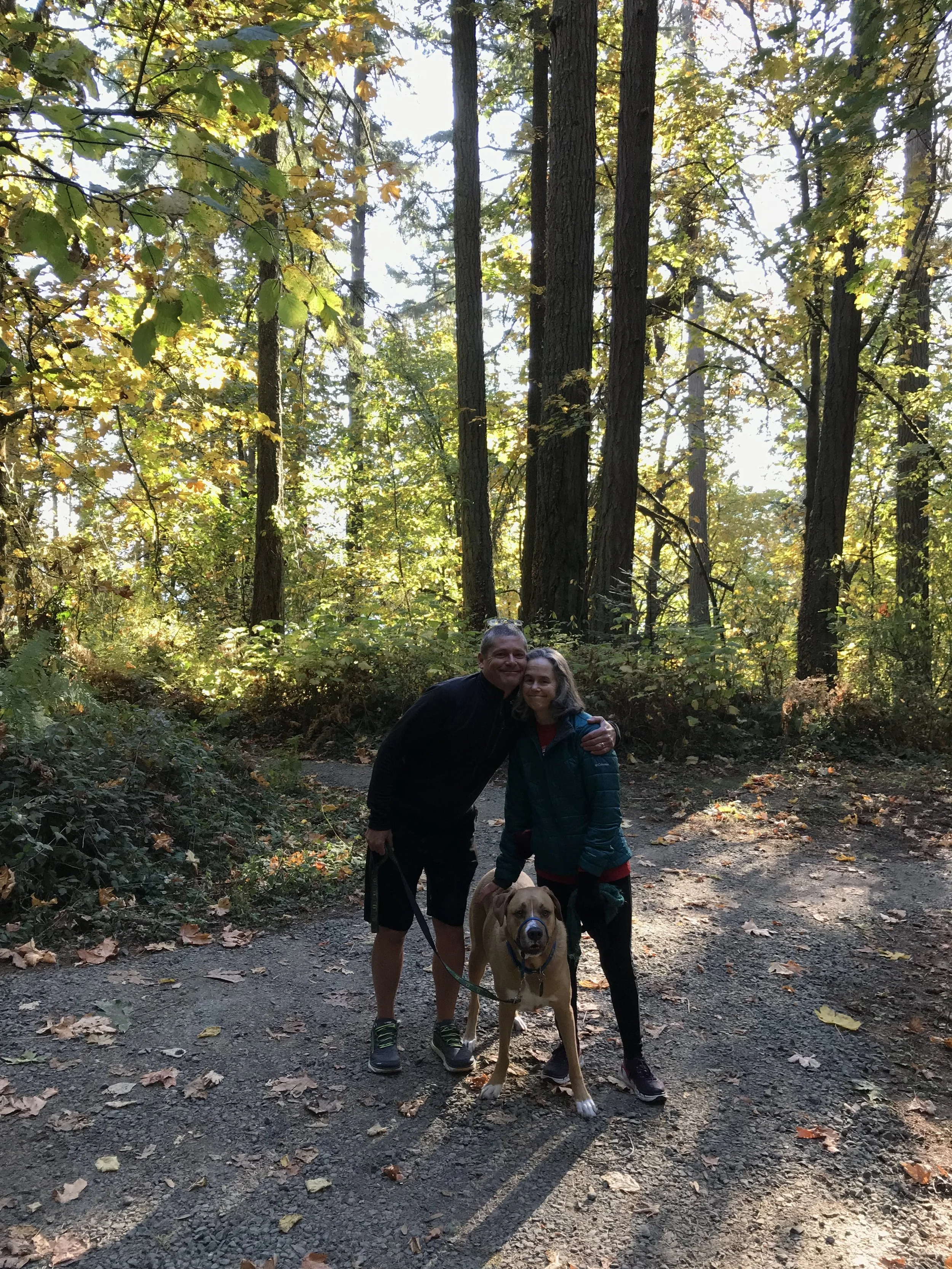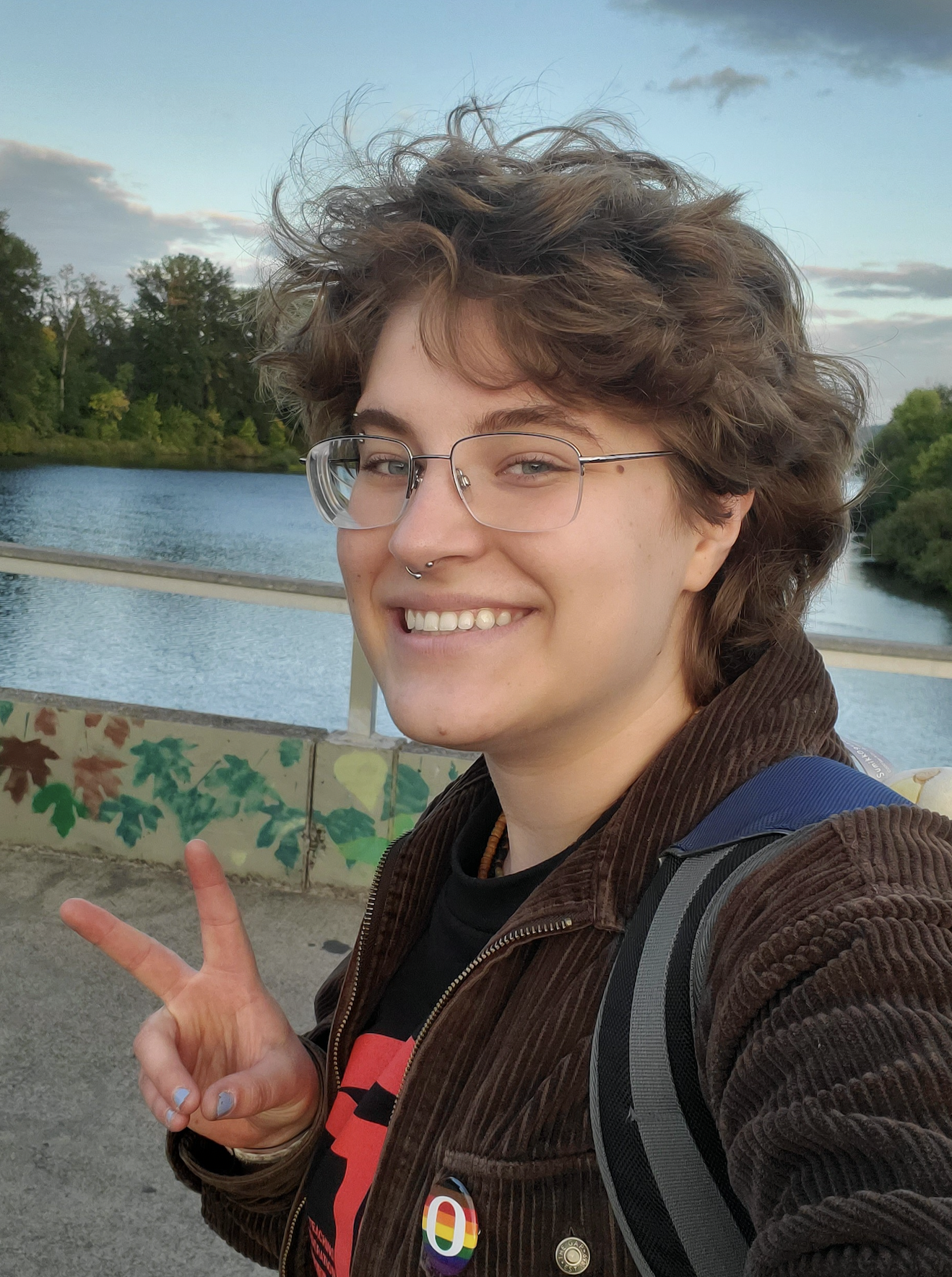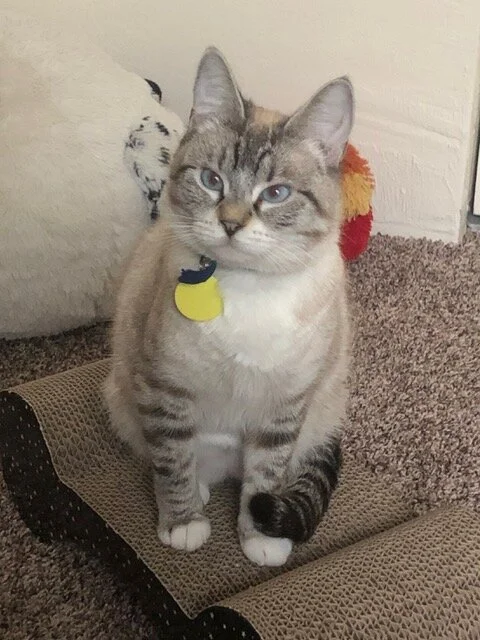Daniel T. Grimes, DPhil. (he/him)
Principal Investigator
Dan studied Molecular and Cellular Biochemistry at Oxford University (2004-2008). He then undertook a PhD at MRC Harwell and the University of Oxford (2008-2012) where he worked on pathways controlling the left-right patterning of mouse embryos. Next, he moved to Princeton as a postdoc (2013-2018) where his work on heart development, motile cilia and scoliosis in the zebrafish was funded by an American Heart Association postdoctoral fellowship and a K99 Pathway to Independence Award from NIAMS. In 2019, he became an Assistant Professor in the Institute of Molecular Biology at the University of Oregon. Outside the lab, Dan enjoys watching and playing soccer, reading, writing and traveling.
Short CV | Pubmed | Orcid | Google Scholar | Twitter
Beth Bearce, PhD. (they/them)
Post-doc (NIH F32 fellowship)
Beth grew up in the backbone of the US, if you loosely define that to mean "the middle part." She did her undergraduate work at the University of Missouri, in an interdisciplinary track that merged Biochemistry and Dietetics. In 2013, she moved to Boston College for her doctoral studies in Cell Biology with Laura Anne Lowery. There, she used high-resolution, live imaging and quantitative analysis to examine microtubule plus-end regulation during embryonic cell motility (axon outgrowth and neural crest cell migration). Her thesis work was funded by an NSF Graduate Research Fellowship. She defended in June 2019, and then abandoned the Northeast for the Pacific Northwest, in an effort to keep things symmetrical. On that note, in the Grimes lab, Beth is asking questions about how fluid flow inside the developing spine can be sensed and translated, and why these fluid flows are integral for building a symmetrical spine. If she’s not in the Scope/uCT room, check a park (dog, skate, or national), or yell “I attack the darkness,” and wait for her to pop out and tell you to “roll initiative.”
Beth is currently funded by an NIH NRSA F32 Fellowship from NIAMS.
Samuel Bertrand
graduate student
In 2022 Samuel graduated from Vassar College with a B.A. in Biology. At Vassar, he worked with Dr. Megan Gall to investigate the effects of anthropogenic noise on black-capped chickadee mating calls. He also worked with Dr. Candido Diaz and wrote his thesis on unraveling the chemical composition and unique physical properties of Cyrtarachne akirai silk. He spent a summer at the University of Chicago under the NSF REU where he worked with Dr. Jean Greenberg and Dr. Korey Brownstein investigating pathogen resistance in A. thaliana. Samuel now turns his interests to developmental biology at the University of Oregon where he is pursuing his PhD. Outside of the lab, Samuel enjoys worldbuilding his next DND campaign, gardening, and playing video games.
Calvin Chmelir (he/him)
undergraduate student
Calvin Chmelir is a biology student and Latin language minor at the University of Oregon, and enjoys balancing personal interests with his academic pursuits. Beyond the classroom, he channels his energy into recreational tennis, snowsports, and cross country and maintains a healthy obsession with film and literature. He aims to attend medical school following graduation from the Clark Honors College.
Sophie Fisher (she/her)
undergraduate student
Sophie is an undergraduate student in the Clark Honors College studying neuroscience and minoring in chemistry. After previously conducting research in the Motor Skill Lab at the University of Oregon, she is excited to shift her focus to pursue a more developmental biology-based research experience. Sophie is particularly interested in spinal development. Outside of research, Sophie serves as a resident assistant for the Clark Honors College Academic Residential Community. After college, she hopes to attend medical school. Outside of school, she likes to hike, read books, and cook new recipes.
Max Horrocks (he/him)
graduate rotation student
Max graduated with a B.S. in Psychology at Utah Valley University. After several years working in the mental health field, Max joined the lab of Santiago Jaramillo at the University of Oregon (UO) where he studied the effects of hallucinogenic drugs on auditory processing. He is a now a Ph.D. student at UO in the Institute of Neuroscience where he hopes to learn more about developmental neuroscience. Max enjoys gardening, fly fishing, and spending time with his partner.
Zoe Irons
graduate student (NIH f31 fellowship)
Zoe received a B.S. in Biochemistry and Molecular Biology from Dickinson College in 2018. There, she worked with Dr. John Henson on the acto-myosin complex in the contractile ring of dividing sea urchin embryos. She is currently a Ph.D. student at the University of Oregon in the Institute of Molecular Biology. Her interests outside of lab include creative writing, biking along the Willamette River, and playing with cats at the local animal shelter.
Zoe is funded by an NIH F31 Fellowship and was was previously funded by an NIH Developmental Biology Training Program (T32HD007348).
Gabriel Luna
graduate student (hhmi gilliam fellow)
Gabriel graduated with a B.S. in Bioprocess Engineering from the Autonomous University of San Luis Potosí in 2014. Next, he obtained a M.Sc. from the IPICYT research institute in 2017, where he worked with Dr. Alejandro de las Peñas on the regulation of CTA1 that confers high oxidative stress resistance in the human pathogen Candida glabrata. He applied to the University of Oregon to do research using zebrafish. He is currently a Ph.D. student in the Institute of Molecular Biology. Outside of lab, he is interested in: exploring Oregon's nature, watching sports, playing basketball and soccer, and reading thrillers.
Gabriel is currently funded by an HHMI Gilliam Fellowship. Previously, his work was supported by an NIH Genetics Training Program (T32GM007431).
John O’Hara-Smith
graduate student
John grew up in a town called Hollister, California, where he would spend his early days with his grandmother exploring the Monterey Bay aquarium—from these early moments, John has been fascinated with science and understanding what makes living things, well, live. After completing a community college course in science as a high schooler, John was inspired to pursue a career in the life sciences. John then went on to complete a bachelor’s degree in Molecular and Cell Biology at UC Berkeley and following completion of the bachelor’s, worked on projects focused on stickleback tooth regeneration in Dr. Craig Miller’s lab.
Working on teleost model systems became fascinating to John due to the optical clarity of the embryo (in certain species) as well as the wide array of molecular and genetic toolkits available for exploring biology in vertebrates. Now, John has decided to further his education by pursuing a PhD in molecular biology at the University of Oregon. For his graduate work, John aims to understand the molecular genetic basis of spine development. More broadly, he hopes to expand our mechanistic knowledge of how organ systems maintain their respective positions and upscale in size throughout development; both things which contribute toward proper anterior-to-posterior body patterning. In his free time, John enjoys playing and watching basketball, and loves playing video games.
Michelle Ortman
graduate rotation student
Michelle graduated from George Fox University in 2023 with a B.S. in cell and molecular biology and is now a first-year Ph.D. student at the University of Oregon (UO) Institute of Neuroscience. She previously conducted research at Baylor College of Medicine in Houston, working under the PI Dr. Melanie Samuel to determine the molecular mechanisms underlying retinal development in mice. Specifically, she worked on a project looking at the role of the serine/threonine kinase LKB1 in retinal ganglion cell migration. At UO, she is similarly interested in studying molecular mechanisms underlying development, both within the context of the nervous system and beyond. Outside of academics, Michelle enjoys playing piano and cello in the UO campus orchestra, as well as birdwatching and hiking around her hometown of Bend, Oregon.
Judy Peirce (she/her)
research assistant
Judy graduated with a B.S. in Biology from the University of Oregon in
1984. As an undergrad researcher she worked in the Menaker lab studying
circadian rhythms in a variety of vertebrate animal models including
rats, mice, anolis lizards, gecko and trout. After graduation she
continued to work as a research assistant in the Menaker lab and later
split her time between the Venkatesh lab, working with fruit fly
genetics, and the Eisen lab working with zebrafish.
In 1988 she began a collaboration with Len Schvaneveldt and generated The Schvaneveldt Sisters: Cody, Eleni, and Eliot, an elite team of millennials
questioning the paradigm every day. Judy returned to zebrafish research
in 2002 when she joined the lab of Monte Westerfield as a research assistant. She now splits her time between the Westerfield and Grimes labs.
Luke Rethwill
undergraduate student
I am from Sutherlin Oregon, a very small town with little scientific background. I started to become interested in science during high school when I took Medical biology, Forensics, Chemistry, Physics and Robotics. After High School I went to Umpqua Community College and got my associate degree in Science/Mathematics AAOT. During this time I was awarded a scholarship from the National Science Foundation that allowed me to transfer and study biochemistry at the University of Oregon. My academic interests are in Molecular Biology, Biosynthesis, Biotechnology and most things Chemistry and Physics. So, joining the lab I’m excited to expand my knowledge on the methodologies of molecular biology. Outside of academics, I’m a huge sports fan (Basketball, Football, Baseball), cyclist, and traveler. After undergraduate, I would like to continue through my National Science foundation program and get my masters in Chemistry. Depending on if I like the field of chemistry or not, I will switch my path to pursue my childhood dream of becoming a medical doctor and attend medical school.
Stevana Schauer
graduate student
Stevana graduated with her B.S. in Biology from the University of Louisville in 2021. While studying there and for a year after, she worked in Dr. Michael Perlin's lab and wrote her thesis on implementing CRISPR/Cas9 gene editing in the phytopathogenic fungus Microbotryum. This research also took her to the Czech Republic to learn how to transform the fungus's host plant Silene. She is now a PhD student in the Institute of Molecular Biology at the University of Oregon and is interested in learning more about developmental biology and genetics. She hopes to one day use this knowledge to gain more insight into the causes of chronic diseases. In her free time, Stevana enjoys traveling, hiking, painting, watching horror movies, and playing video games.
Samara Williams
graduate student
Samara graduated with a B.S. in biochemistry from the University of Washington in 2020. There, she worked in the Musculoskeletal Systems Biology Laboratory of Dr. Ronald Kwon, examining the function of hox genes in patterning the zebrafish skeleton. After that, she worked as a technician in the laboratory of Dr. Ian Swinburne at UC Berkeley, studying the zebrafish inner ear and the role of hormone signaling during development and homeostasis. Currently, she is a PhD student at the University of Oregon in the Institute of Molecular Biology and is excited to be pursuing new developmental questions in the Grimes Lab. In her free time, she enjoys swimming, cycling, video games, and participating in the UO Campus Orchestra.
Non-human lab members
Arwen Irons
undergradu-cat assistant
Human psychology major, working to prove that it is in fact possible to bite the hand that feeds you and still get fed given an adequate “cuteness” factor. Ongoing projects include discovering the mechanisms of most efficient toy destruction, and current methods on chewing through power cords. Specialties are identifying the warmest place to nap and receiving treats for a minimum of good behavior.


